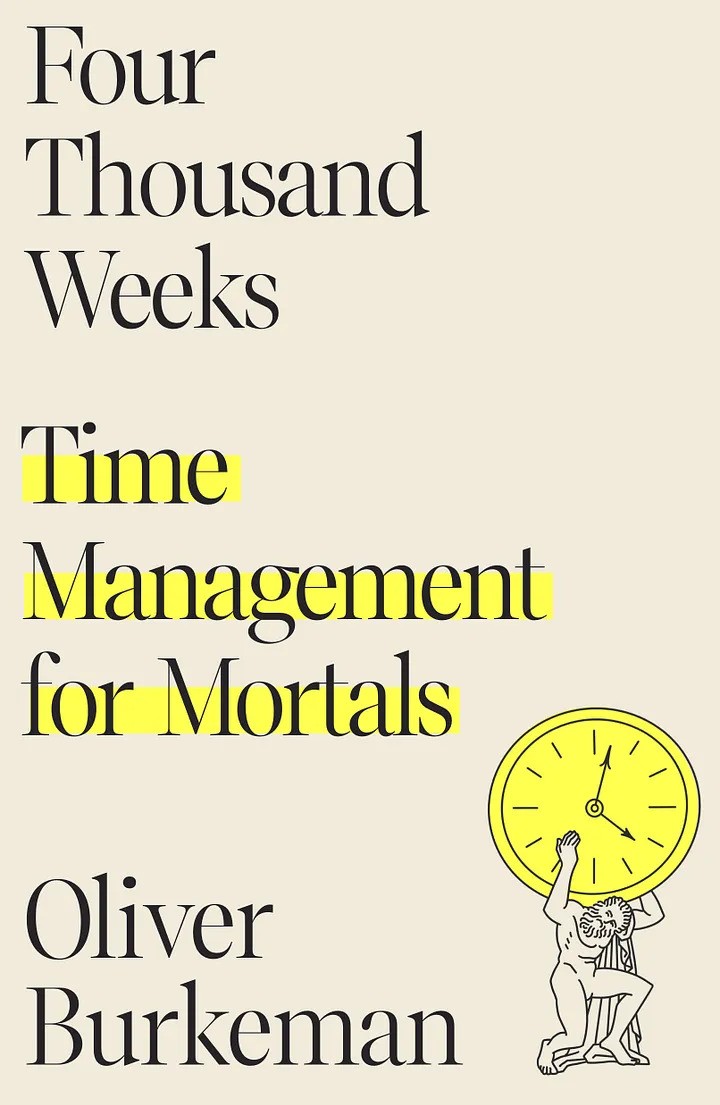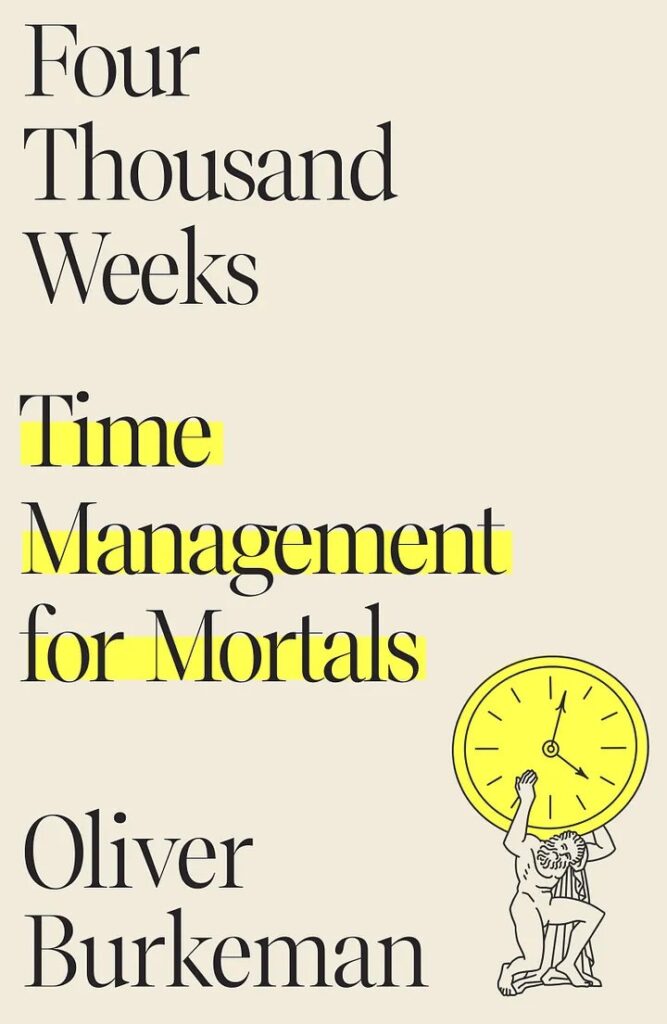
I recently completed Olive Burkeman’s ‘Four Thousand Weeks’ — a deeply insightful exposition on the subject of time. Burkeman carefully reviews time from a multitude of angles, all with microscopic intensity. He even questions the notion of ‘having time’ as a spurious one in as far it is not guaranteed to the same extent one ‘has’ ‘for example, a dollar in their pocket. Most importantly, he is able to contextualize the adversarial relationship with time demonstrating that it is not only a is a modern phenomenon but has, to varying degrees, confounded human beings since the dawn of communication through language. In so doing, he successfully maps notable attitudinal changes that have taken place, over time.
Time
Lose the battle, to Lose the War
The war against time has been lost — and this should offer comfort.
All this while since I first pondered time, Burkeman’s treatise offered me the tools and indeed the language for my reflection. It seems to me to be the case that virtually all of life, is an earnest attempt by human beings to apprehend time. It is in the ever-expanding to-do list, or in the myriad ways we project into a future that is always rushing towards us bearing only the clarity of fantasy. Of course, this simulation conveniently leaves out the practical requirements for landing in our future mold, as these are held firmly at bay, by the limits of imagination itself.
The thing that gives time its valence, is it carries with it the hopeful delusion that there will be a point in its arrow where we shall finally arrive where our goals will have been satisfactorily accomplished and no further milestones will be appealing enough to create a frenzied motion towards them.
This existential tussle gives rise to the most of our anxiety. The infinitude of things we wish to do with our time, betrays a society-wide blind spot. Take for instance, that we wish to simultaneously prioritise quick professional success with its requirement for additional time allocation, whilst also retaining holistic family lives with all the fixins i.e. leisure, isolation and rest. Moreover, this has the added quality of perpetually having us one step ahead, removed from the only guaranteed sliver of time, which is the present. We are unfortunately sometimes a lot like the main character Mr. Duffy in James Joyce’s Dubliners who was described as a ‘bland, colorless bureaucrat, living his life according to rules and regulations”–
But the most relevant observation about his countenance, with respect to our modern life, was that “Mr Duffy lived a short distance from his body”
Fail Again, Fail Better
The good news is that you will fail.
The good news is that you will fail to get as fit as your 20-year-old self, because the time to meaningfully care for your dependent young family, cannot co-exist in the same time capsule as training for an ultra-marathon let alone to meet the rising demands of your ailing parents and adjusting to managing your new role. It will have to be enough that you know people who have met their PhD deadlines, while negotiating gun fire in the most restive parts of the Middle East. The start/stop attempts to lose weight will fail. If you are lucky, your brief stay on earth will be punctuated by tropical illness that can be a natural solution to intermittent weight loss. If you are even luckier, and have a life partner persuaded by the covenant they made under witness of God, to love you in sickness and in health and in weight gain- then you are home free. ‘Home free’ only as a figure of speech, because you may be a while longer finishing your dream house.
The frantic attempts to accomplish everything in this laughably limited time on earth deserves not only understanding but our compassion. This is necessary when we consider that this is indicative of our inherent desire for distraction; distraction from contemplating the imagined perils of living, like illness and loss.
The unforgivable deception of the self-imposed time pressure is that it separates us from the mundane loveliness contained in the miracle of being. Therefore, if you also take the view that the futile hope of conquering time is a scourge to be cured, what follows is a discussion of a possible antidote.
The Antidote
You will not come close to doing 90% of the things you set out to accomplish, and that is no insult, it is a lifeline. There is valor in acceptance of this limitation so that we may never have to feel the sting of missing arbitrary deadlines, or the accusatory glare of a full email inbox or 83 unread WhatsApp chats.
According to the Greek Philosopher Seneca, there is no need to play the long game with time as “Life is like a play; it’s not the length, but the excellence of the acting that matters.”
And you may wonder how to bring that momentary excellence, the trick lies in not going for length — and the endless expectation for more time. Burkeman advises us that “Choice brings happiness” and we would do well to revel in the “Joy of Missing Out”. So, firstly, take an axe to all your innumerable wants and practice the privilege of doing only a few things. Reclaim the natural ease of being delightfully unbothered but what remains undone and restrict attention to only the sacred and savoury- stripping away all the rest. In the wisdom of Mary Oliver — “Attention is the beginning of devotion”. Do this by absorbing the knowledge of your inherent limitation to wade through time. Only then may you be able to tame the foolhardy sprint towards the infinite future possibilities, all of them, unknowable. Your value will not diminish as a result, but you may wind up a few kilos lighter.
PLACE
And finally, know that the only way time wins, is if we are trying to occupy it futuristically. As the famous Vietnamese monk Thich Nhat Hahn said “The present moment is the only one over which we have dominion”. In the book of Matthew 6:34, Jesus enlightens us thus “Take therefore no thought for the morrow: for the morrow shall take thought for the things of itself. Sufficient unto the day is the evil thereof.” Only Here, Now — is the time, and none other. Time has lost.



